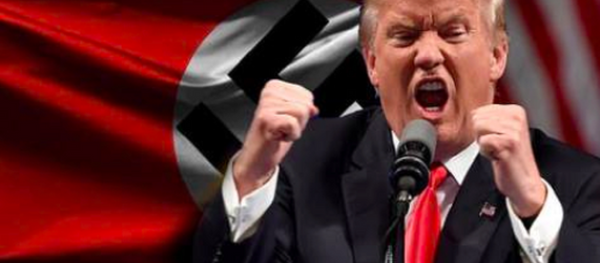The messages tell the trolls that US authorities have identified them and are tracking them, the New York Times reported based on the account of officials briefed on the operation.
It's the first "overseas" mission to protect US elections, including the midterms in November, according to the Times. While the outlet detailed US officials travelling to other countries to help them improve cybersecurity around important infrastructure, it isn't clear why this operation is characterized as "overseas" when it appears to have taken place entirely in the cyber realm.
Even though the US military is said to be defending against foreign troll operations for the first time, according to the NY Times, in fact the US has helped pioneer the use of these tactics against foreign countries to influence their elections.
A 2011 report by The Guardian revealed that the US military — specifically, US Central Command (CENTCOM) — had contracted a company to create software that would allow them to influence conversations on the net through sock puppet accounts that spread pro-American propaganda.
The program allows "one US serviceman or woman to control up to 10 separate identities based all over the world," according to the paper.
The officials who spoke with the Times wouldn't say how many people they are targeting or name any specific individuals, nor explain how they are able to send messages directly to the trolls. Presumably, contact could be made via email or social media message, or through other means.
"Of course the United States is the first country where the internet really took off, and it's completely understandable given the previous history… about the United States interfering in elections all the way back in 1947," Alexander Mercouris, editor-in-chief of The Duran, told Radio Sputnik's Loud & Clear.
"Anybody else who has been familiar with the history knows about massive US influence campaigns that happened in many countries during the Cold War," Mercouris told Loud & Clear hosts John Kiriakou and Brian Becker. "It would not be at all surprising if it was the United States that was the pioneer in doing this thing and that the United States did this on a huge scale."
Senior officials cited by the New York Times said Cyber Command wasn't "threatening" the trolls, though former officials told the outlet that the threat of sanctions or being indicted nonetheless looms.
The Internet Research Agency, the organization accused of using social media to try to sway the vote in the US 2016 presidential election, is a registered LLC that is accused of being run by the Kremlin. Twelve Russians accused of participating in that effort have been indicted by US special counsel Robert Mueller, who is heading the probe into allegations of collusion between the campaign team of now-US President Donald Trump and Russia.
"The link to the Russian government was never clearly established, not even in special counsel Mueller's famous indictment," Mercouris said.
The US Cyber Command campaign, its operatives say, is aimed at hacking groups funded by Russian oligarchs and also at Russian intelligence agents who are accused of being a part of the Kremlin's alleged disinformation campaign.
"Officials said some of the targets were involved in previous Russian efforts to spread disinformation in the United States and Europe, including the 2016 presidential election," the Times said. However, it isn't clear how those alleged trolls are operating since Facebook, Twitter and other social media platforms have cracked down on accounts who were said to have meddled in the 2016 election or used their platforms inauthentically.
Facebook has partnered with the Digital Forensics Research Lab, an arm of the neoconservative Atlantic Council think tank — which is funded in part by NATO, Persian Gulf monarchies and defense contracting giants — to help weed out the so-called inauthentic behavior. Neither Facebook nor Twitter have linked their recent large-scale bans of alleged fake accounts from Russia or Iran to attempted midterm election interference. Regardless, some news outlets, including the Associated Press, have levied that charge.
The Times, which spoke with Ben Nimmo of the Digital Forensics Research Lab for the article, opined that the Cyber Command's operations "appear relatively measured, especially in comparison" with "increasingly elaborate and sophisticated" disinformation operations from Russia. The paper does not point to concrete examples of the alleged effort nor how the supposed influence operations have been "refined."
The newspaper reported that on Friday, the Office of the Director of National Intelligence (ODNI) said "that state and local governments have reported attempted intrusions into their networks, but that foreign governments have not penetrated voting systems." It isn't clear how the Times came to that conclusion, because the ODNI report merely stated, "Some state and local governments have reported attempts to access their networks, which often include online voter registration databases, using tactics that are available to state and non-state cyber actors."
The Times says that American intelligence officials don't believe Russia will try to directly manipulate votes but warns that disinformation operations "have continued" and are now more sophisticated.
According to the ODNI report, Russia's soft cyber measures include "using social media to amplify divisive issues, sponsoring specific content in English-language media like RT and Sputnik, seeding disinformation through sympathetic spokespersons regarding political candidates and disseminating foreign propaganda."






